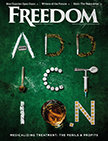Trouble in Paradise, Then Hope

It is one of South Africa’s leading vacation destinations for well-heeled seekers of finely appointed hotels, with stunning views of the ocean and mountains, where “peace and relaxation come easily,” according to a travel brochure. Replete with “international polo stars, local and international glitterati” and “captains of industry at leisure,” Plettenberg Bay is also a spectacular natural wonderland where visitors can get a close look at bottlenose dolphins, southern right whales, Cape fur seals, and all manner of wildlife that “play in our paradise.”
Clinging to the edge of Plettenberg, and standing in stark contrast, is Qolweni Township, a ramshackle settlement lacking basic services like electricity and plumbing. For years, this juxtaposition of wealth and poverty polarized Plettenberg Bay. Though discontent seethed just beneath the travel-agency veneer for years, it wasn’t until February 2012 that Qolweni exploded.
Rocks rained down on passing cars. Burning tires and clouds of tear gas obstructed the main road into Plettenberg. The violence erupted when the local mayor failed to show up at a meeting to work out solutions to a list of grievances submitted by Qolweni township residents, according to local reporter Mike Hampton. The unrest escalated, forcing many residents to shutter homes and businesses and take shelter.
But the explosion was more than a local outbreak; Plettenberg Bay is a microcosm of South Africa.
“All South Africans should fear the consequences of mass unemployment when combined with the indignities of insufficient toilets, electricity and running water (the basics needed for any society to exist),” Hampton wrote at the time.
That statement proved prophetic. Plettenberg Bay was rocked by a wave of break-ins, muggings, stabbings and armed robberies—a 95 percent increase in local crime. Pressure on police to crack down brought a measure of immediate relief, but sufficient calm needed to be restored before addressing the larger, more persistent issues fracturing the community.
Enter Alet Ollemans, bearing copies of the common-sense moral code, The Way to Happiness, a nonreligious text authored by L. Ron Hubbard. First published in 1981 with the aim of bringing peace and calm to what Mr. Hubbard observed was a disordered society, Ollemans saw it as the means to cool a situation that was rapidly moving toward incendiary.
“The Way to Happiness carries a very simple message of decency and integrity,” says Ollemans.
Ollemans introduced Plettenberg Bay’s chief of police to the book, and explained how distribution of The Way to Happiness has been part of successful campaigns to quell violence and crime in other parts of the world.
Police patrolling high-risk areas were soon carrying copies of The Way to Happiness in three languages spoken throughout the townships (English, Afrikaans and Xhosa) and distributing them door-to-door.
“People read the book, adopted the 21 precepts and changed their lives,” says Stephen Jansen, a sergeant with the South African Police Service in Plettenberg. Jansen says that after he gave a copy to a local, Khaleel (not his real name) who ran a marijuana farm, Khaleel decided to stop growing drugs. “He decided to stop doing something he knew was illegal,” Jansen says.
As distribution of the book broadened, police noticed an increased understanding and trust developing between locals and law enforcement, making it easier for the police to resolve problems within the neighborhoods.
“Besides merely handing out the books, we hear their concerns regarding crime,” said one police colonel. “During the process we received a lot of information that is valuable to us in terms of planning the way forward.”
The way forward included not only residents in the townships, but the region’s more affluent citizens and business owners.
“Solutions have to be inclusive of everyone,” says Ollemans.
Soon the South African Police Service broadened its program and began distributing The Way to Happiness to volunteers in schools, churches and local businesses, with related audiovisual materials accompanying the book.
The campaign resulted in a widening perimeter of calm and a noticeable adjustment of Plettenburg’s moral compass. Robberies fell by 25 percent, malicious damage to property dropped 40 percent, and attempted break-ins fell by half.
“I am of the view that not only has this program made a significant contribution to the effort,” says Bruce Richardson, chairman of Plettenberg Bay’s Community Police Forum, “but further that police members involved have experienced a great deal of job satisfaction from proactively engaging with communities.”
The most significant change Ollemans sees as a result of the local campaign with The Way to Happiness is the opening of dialogue enabling those in Plettenberg to work together to improve conditions for everyone. Today, the crime rate in the city is the lowest it has ever been; weeks often pass without a single incident.
“When people read the booklet, they found a simple solution that provided a path to follow to improve their lives and the lives of others,” she says. “Now they are working together to stay on that path.”





























